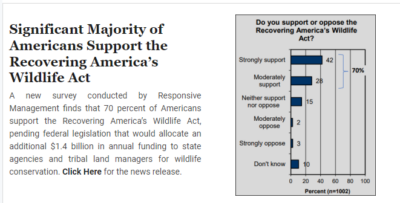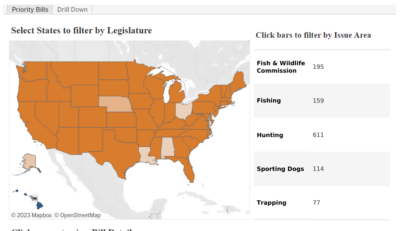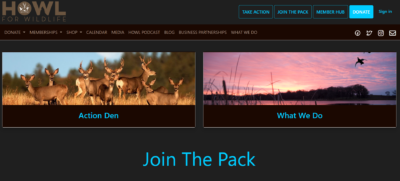Everett Headley 04.17.23

There was a time when everyone in the tribe benefited from the hunt. It supported everyone and everyone supported it. Today, hunters comprise less than 10% of the population. As a country we are heavily urbanized and the people are now generations removed from outdoor recreation. Those of us who remain connected to the landscape need to speak up for our heritage. More than that, we need to learn how to tell our story and how we steward our natural resources.
Research proves support for hunting.

Mark Duda of Responsive Management has been studying wildlife and outdoor recreation for over thirty years. His work recent on the NRA Hunters’ Leadership Forum How to Talk About Hunting provides some very salient statistics and talking points that can help you more effectively communicate about hunting. His research shows that 93% of Americans eat meat and 84% approve of hunting for meat. While anti-hunters are louder than the “silent majority,” they are still very much a small portion of the rest of the country. Even more telling is that since 1995, there is a steady increase in adults who approve of legal hunting and corresponding decrease in those that disapprove.
Duda’s research seems to tell us that there is substantial support for hunting, yet we continue to see anti-hunting measures proposed and passed by state legislation. This year alone the Sportsmen Alliance is tracking over 600 bills affecting hunting and wildlife management. As storytellers, hunters are good at reciting the legend of their first big buck, but need work on connecting non-hunters to an experience foreign to them. Marks’ advice is to ignore the anti-hunting rhetoric and instead focus on a hunter’s motivations and the conservation benefits for everyone hunting provides. Hunters are consistently concerned for animals’ welfare and show respect that borders on reverence for it. For over a hundred years hunting has been highly regulated and virtually the only source for funding wildlife management across the country.

Learn to tell your story well.
Your story is significant because it can only be told by yourself. Listeners who know you already understand your character and personality. Those that don’t, need to hear that you have principles and credibility. Discussing your ethics and the practice of following regulations removes the idea that you hunt “just for blood.” In telling your tale, support your emotion with reasoning and documented claims. There is a prevalent myth that polar bears are disappearing with the arctic ice and elephants in Africa are all but gone. The reality is that both populations are increasing due to hunting’s support. You don’t need eloquence for your words to be potent.
Anti-hunting efforts are active.
Sportsmen need to bring that same influence into the state legislatures. In 1990 California passed proposition 117 prohibiting the hunting of mountain lions. Today the population exists almost unchecked and human-wildlife conflicts are drastically increasing. Citizen initiatives have expanded exponentially and rely on uninformed citizenry to be emotionally coerced. In 2024 there will be another on Oregon’s ballot to prohibit the injury or killing of animals. Organizations like Howl for Wildlife inform and involve sportsmen. Howl rallies the support of sportsmen behind issues directly impacting hunting, fishing, and trapping. Actions give an overview of what is at stake and how a hunter can contact the decision makers. Solidarity of hunters across the state lines is vital to preserving our harvest heritage.

Our legacy as hunters continues to be written. We have self-policed with the advent of Fair Chase and regulations. We urged the passing of the Pittman-Robertson Act, taxing ourselves to ensure wildlife were shepherded for future generations. When there is a need in the field to improve habitat, state wildlife agencies call on conservation groups like the Rocky Mountain Elk Foundation and Pheasants Forever, sportsman groups, to provide the hands and tools. Conservation issues ahead of us will need strong and determined leadership from hunters.
Speak up for all hunters.
Sportsmen everywhere are needed to sustain the cause in states not their own. States embattled with smaller numbers of hunters are susceptible to losing access and opportunity. A few moments of time spent writing an email multiplied by thousands of pens has been felt in state legislatures across the west this spring. The work to preserve hunting on one front strengthens them all.
The author is a member of Howl for Wildlife and the Sportsman Alliance.

